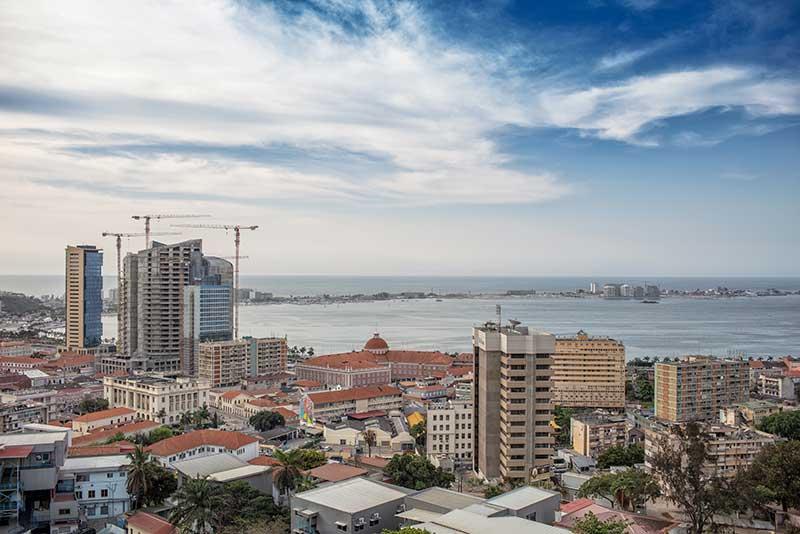Africa-Press – Angola. The World Bank’s latest bi-annual review of the short-term regional macroeconomic outlook, reflected in Africa’s Pulse, notes that the uneven and incomplete recovery of the Sub-Saharan economy is proceeding at a mixed pace across the region.
Angola and Nigeria are expected to continue their growth momentum in 2022, with an increase of 2.7 and 0.2 percentage points, respectively, partly due to high oil prices and the good performance of the non-oil sector.
Of the three largest economies in the region (Angola, Nigeria and South Africa) this year, growth in South Africa is expected to decline by around 2.8 percentage points, dragged down by persistent structural restrictions.
Resource-rich countries, especially those with extractive sectors, will have a better economic performance thanks to the war in Ukraine, while non-resource-rich countries will experience a slowdown in economic activity.
Excluding Angola, Nigeria and South Africa, regional growth is projected, in 2022, at 4.1 percent and, in 2023, at 4.9 percent. The East and Southern Africa sub-region shows a sustained recovery from recession, at 4.1 percent in 2021, down to 3.1 percent in 2022 and around 3.8 percent in 2024.
Also, DRC (Democratic Republic of Congo) and Zambia are expected to benefit from rising metal prices in the short to medium term and gain from the transition from fossil fuels in the long term. Likewise, Rwanda and Seychelles are expected to post the biggest decline in 2022, down 4.1 and 3.3 percent respectively.
The West and Central Africa sub-region is expected to grow by 4.2 percent in 2022 and 4.6 percent in 2023. Excluding Nigeria, the sub-region is expected to grow by 4.8 percent in 2022 and 5.6 percent % in 2023. The growth trajectory for Cameroon, which has a somewhat diversified economy, shows robust and sustained performance reaching 4.4 percent in 2024. Ghana’s economy is expected to accelerate this year, growing by 5.5 percent percent, and then gradually slowing to 5.00 percent in 2024, down from 7.00 percent growth before the pandemic.
The report also highlights the importance of expanding social protection programs beyond safety nets to strengthen economic resilience and shock-response capacity, particularly for poor and vulnerable households. Recommendations include the development of social insurance, savings and labor market programs that contribute to economic resilience by protecting urban informal workers and helping the population to invest in health and education.
Analysis of “Africa’s Pulse”
The bi-annual analysis of the short-term regional macroeconomic outlook, reflected in Africa’s Pulse, estimates growth of 3.6 percent in 2022, down from 4.00% in 2021, as the Sub-Saharan region continues to deal with new variants of Covid-19, with global inflation and with supply, disruptions and climate shocks.
Adding to the region’s growth challenges are rising global raw material prices, which have grown at a faster pace since the start of the conflict between Russia and Ukraine. As the world’s leading exporters of staple foods, Russia – the world’s largest exporter of fertilizers, and Ukraine account for a substantial share of wheat, corn and seed oil imports, which could be halted if the conflict persists.
While Sub-Saharan economies will also be affected by tightening global conditions and reduced foreign financial flows to the region, Africa’s Pulse notes that high fuel and food prices will translate into higher inflation in African countries, harming poor and vulnerable citizens, especially those living in urban areas.
A point of concern is the increased likelihood of civil strife as a result of food and energy fueled inflation, particularly in this current environment of heightened political instability.
Albert Zeufack, the World Bank’s Chief Economist for Africa, said: “As African countries face ongoing uncertainty, supply disruptions and rising food and fertilizer prices, trade policy can play a key role in ensuring the free flow of food across borders throughout the region”.
Amid limited fiscal space, Albert Zeufack added, “Policymakers must look for innovative solutions, such as reducing or temporarily suspending import duties on staple foods, to provide relief to citizens.”
For More News And Analysis About Angola Follow Africa-Press






